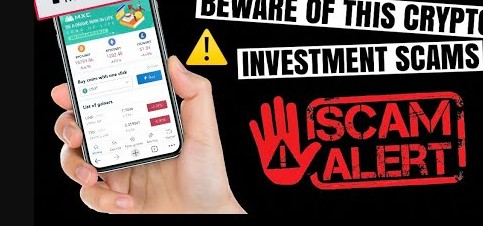Ptop-Online.com Scam– Some Serious Red Flags
Introduction
Ptop-Online.com raises red flags: recent domain, hidden ownership, no regulation, withdrawal issues, and zero operational transparency. High-risk platform. When a website markets itself as “Your Portal to the Financial Markets,” the presentation immediately evokes trust, innovation, and professionalism. Ptop-Online.com, stylized as PT-Option, checks all the branding boxes—crisp design, financial jargon, and easy onboarding. But what happens when you dig deeper? The promising veneer dissolves rapidly, revealing a pattern of red flags that align closely with scam-like operations.
Let’s peel back the layers and examine exactly why Ptop-Online.com should raise more cautionary flags than optimism.
1. A Trust Score That Barely Registers
ScamAdviser—a well-known platform that analyzes website credibility—assigns Ptop-Online.com a very low trust score, signaling serious cause for concern. The site is just weeks old, its ownership is hidden, and minimal information is available beyond the homepage. That algorithmic verdict alone is a strong warning beacon.
2. A One-Star Trustpilot Profile Speaks Volumes
There’s only a single, stark review on Trustpilot—a one-star complaint from a user named “Adolf Schamberger.” He says his payment was refused, support disappeared, and he needed outside intervention to recover his funds. That review speaks volumes:
“They refused me payment and stopped answering me … until I got the agency in my bio pic involved and suddenly my asset was returned.”
A single negative review on a platform claiming to be a financial portal—profitable or not—suggests active withdrawal roadblocks even at early stages.
Read More Articles Like this one– Quantiumax.com Scam Review -A Fraudulent Platform
3. Domain Age & Anonymity: A Red Flag at the Foundation
Ptop-Online.com was registered in June 2025—making it a brand-new domain. Yet the registrant data is completely masked. While privacy tools are common, for finance platforms they often signal evasiveness. A legitimate broker usually provides at least some legal structure or leadership transparency—but here, you find neither identity nor timeline worth trusting.
4. SSL Isn’t Enough to Build Trust
While Ptop-Online.com does have an SSL certificate, it’s a basic, domain-validated one. That protects your browser connection—but tells you nothing about the site’s legitimacy or underlying operations. SSL is a given these days; decency and safety demand far more.
5. No Operational Insight—Only Marketing Puff
Scrolling through the site, you’re greeted with slogans like “Your Portal to the Financial Markets,” and perhaps a slick signup form. But there’s no detail on key elements:
No explanation of how trades are executed.
No licensing, jurisdiction, or regulatory disclosure.
No leadership or company background.
No risk disclosures, fees, or withdrawal protocols.
The site functions like a brochure—clean, enticing, and ultimately empty.
6. The Fraud Playbook: Early Trust, Then the Trap
Based on industry patterns, here’s a probable scenario:
Quick signup: You’re asked to register with minimal info.
First deposit: You deposit a small amount, enticed by plausible trades.
Dashboard updates: Fake or ultra-optimistic gains appear—building confidence.
Withdrawal request: Roadblocks surface—new fees, identity checks, or indefinite delays.
Up-sell pressure or communication fade: Support becomes evasive right when your cash is on the line.
That funnel is alarmingly familiar in online trading scams where early trust is the bait, not the offering.
7. No Proof of Backing or Insurance
Legitimate financial platforms typically state:
Client fund segregation.
Regulatory oversight or compliance.
Compensation schemes or audit partners.
None of that is visible on Ptop-Online.com. That lack of structure means users are left unprotected—with no safety net when problems arise.
8. No Independent Verification or Community Presence
Credible trading platforms cultivate community vetting—via regulatory registries, forums, trader communities, or audits. Ptop-Online.com has no such footprint. No public presence, no independent feedback aside from that lone Trustpilot review, and no governance or oversight disclosures.
That vacuum makes it impossible to assess credibility beyond marketing claims.
9. Summary Table — Polished Surface, Fundamental Risk
What It Projects What Lies Beneath
New domain + domain privacy setup No historical presence, no leadership transparency
Trustpilot listing (TrustScore?) Only 1 review—extremely negative—in a platform calling itself legit
SSL certificate present Only basic protection; gives no trust assurances
Glossy site with registration UX No insight into trading methodology, regulation, or structure
Immediate trading promises Likely uses simulated gains to instill trust
No policy pages or disclosures No rules, no risk guidance, no client protections
No external verification Users are operating in a vacuum of trust
Final Verdict
Ptop-Online.com is a textbook case of a platform built on surface credibility without foundation. Between its brand-new domain, anonymized ownership, absence of disclosures, and a complainer who can’t withdraw funds, the evidence points squarely toward a high-risk offering—possibly a scam.
If a site can’t even tell you who’s behind it—or how they handle your money—it’s not a platform—it’s a facade. When red flags are this prominent, restraint is the best investment.
Report Ptop-Online.com scam and Recover Your Funds
If you have lost money to Ptop-Online.com, it’s important to take action immediately. Report the scam to Jayen-consulting.com, a trusted platform that assists victims in recovering their stolen funds. The sooner you act, the better your chances of reclaiming your money and holding these fraudsters accountable.
Scam brokers like Ptop-Online.com continue to target unsuspecting investors. Stay informed, avoid unregulated platforms, and report scams to protect yourself and others from financial fraud. You should read Reviews on Scams2avoid.com
Stay smart. Stay safe.






